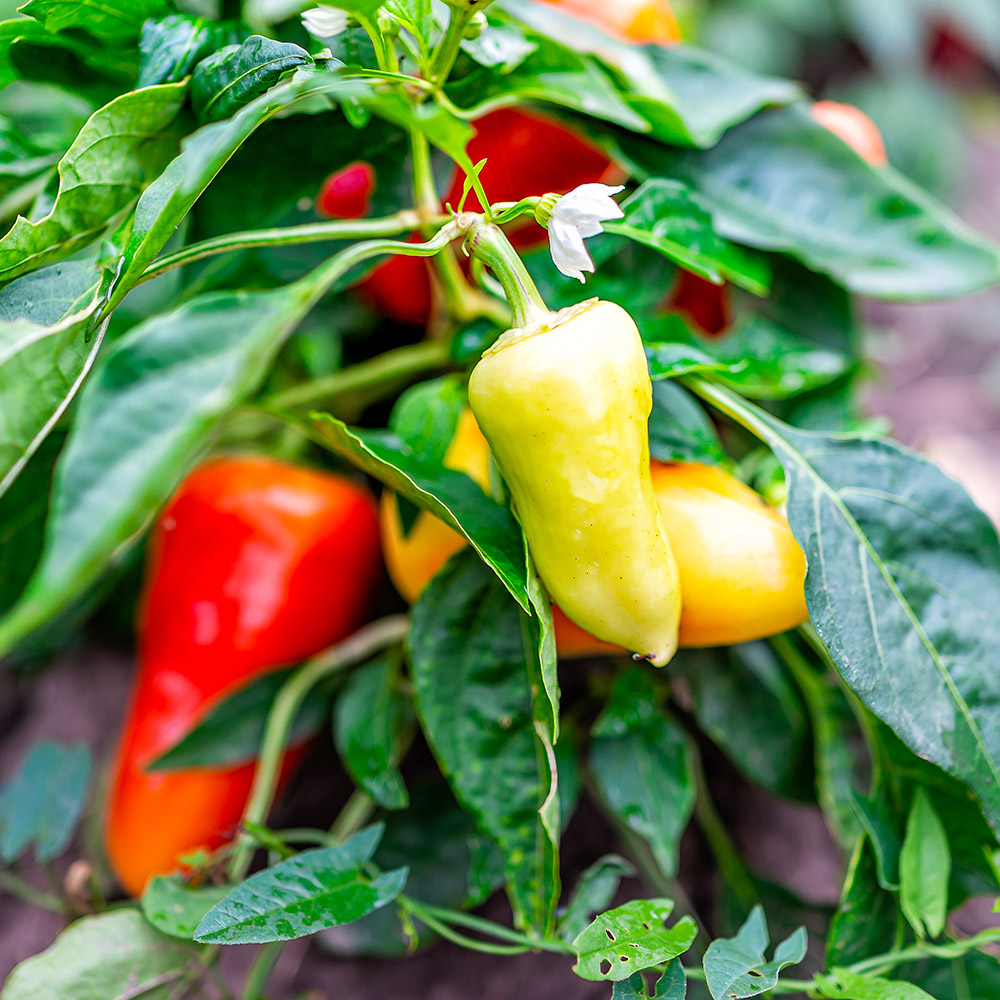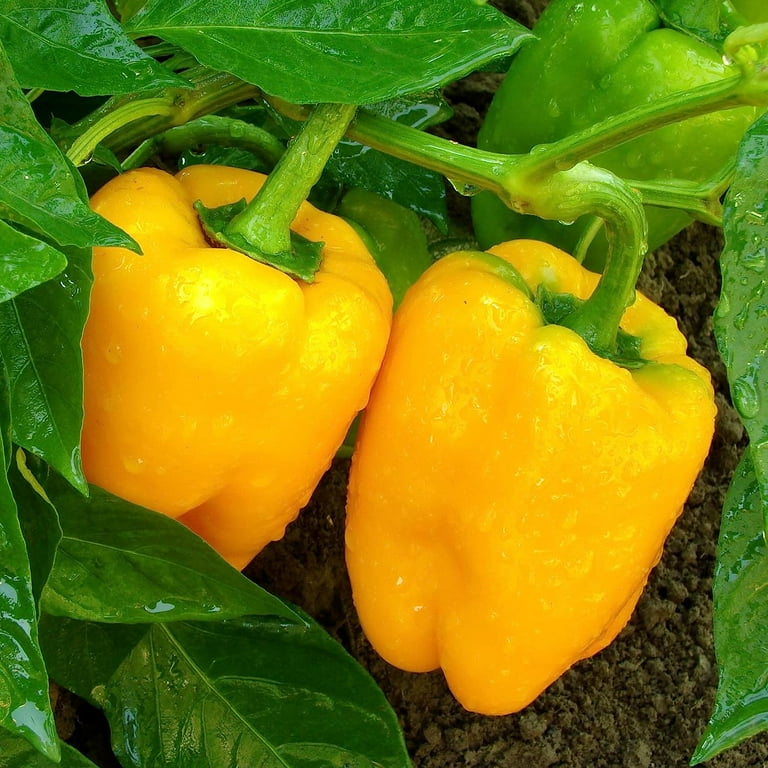Best Fertilizers for Peppers: Boost Development and Taste with Our Leading Picks
Best Fertilizers for Peppers: Boost Development and Taste with Our Leading Picks
Blog Article
Organic Vs. Synthetic Fertilizers: Which Is Best for Supporting Healthy And Balanced Pepper Plants?
In the realm of nurturing healthy pepper plants, the selection in between organic and synthetic fertilizers stands as a pivotal choice with far-ranging ramifications. While both options aim to provide crucial nutrients to sustain plant growth, the subtleties of their effect on the dirt, plant health, and the environment trigger an argument that echoes throughout the horticulture neighborhood. Understanding the distinctive advantages and potential challenges of each fertilizer type is critical for pepper farmers seeking to maximize their returns while maintaining a lasting and eco-conscious strategy.
Benefits of Organic Plant Foods
Organic fertilizers offer a lasting and environmentally-friendly technique to nourishing pepper plants, giving necessary nutrients without using artificial chemicals. These natural plant foods are stemmed from natural sources such as garden compost, manure, bone dish, and seaweed, advertising soil wellness and biodiversity. Unlike synthetic plant foods, natural options release nutrients gradually, guaranteeing a well balanced and constant supply for pepper plants to flourish.
One substantial advantage of organic plant foods is their capacity to improve dirt framework and water retention. By improving dirt wellness, organic fertilizers advertise advantageous microbial task, which assists in nutrient uptake by pepper plants. Additionally, organic plant foods lower the risk of chemical run-off, safeguarding water resources from air pollution and protecting the atmosphere.
In addition, natural fertilizers contribute to long-lasting dirt fertility by advertising the development of beneficial soil organisms. These organisms assist damage down natural issue, launching nutrients in a type that is conveniently obtainable to pepper plants. best fertilizers for peppers. By fostering a healthy soil environment, natural plant foods sustain lasting pepper farming practices that benefit both plants and the environment
Drawbacks of Synthetic Fertilizers
Synthetic plant foods, in comparison to their organic equivalents, present different drawbacks when used to nurture pepper plants, affecting both plant health and wellness and environmental sustainability. One significant disadvantage of synthetic plant foods is their tendency to seep nutrients from the dirt quickly.
Moreover, the overuse of artificial fertilizers can add to water air pollution. Excess fertilizers not absorbed by plants can get rid of into water bodies, leading to eutrophication, where algae flowers deplete oxygen degrees in the water, harming marine life. Moreover, synthetic plant foods are generally acquired from non-renewable resources, such as fossil gas, adding to carbon emissions and ecological degradation throughout their production.
Nutrient Absorption Comparison
When contrasting synthetic and organic fertilizers in terms of nutrient absorption, natural plant foods have the benefit of giving a more well balanced and slow-release resource you could try these out of nutrients. Organic plant foods have a variety of macro and micronutrients that are not only useful for the plants however likewise advertise healthy and balanced dirt microbial task, which helps in nutrient uptake.
Moreover, natural plant foods boost dirt framework and water retention capability, permitting pepper plants to gain access to nutrients a lot more effectively. This enhanced soil high quality assists in root development, enabling better nutrient absorption. Synthetic plant foods, although originally enhancing plant development because of their high nutrient concentrations, may hinder lasting nutrient absorption by derogatory dirt health and wellness in time.
Environmental Influence Factors To Consider

On the other hand, artificial plant foods, although frequently even more concentrated and instantly available to plants, can have damaging effects on the setting if not used correctly (best fertilizers for peppers). Their production needs high energy inputs, causing greenhouse gas emissions and adding to climate adjustment. Furthermore, the drainage of excess synthetic plant foods can contaminate water resources, leading to eutrophication and hurting marine communities.
Ideal Plant Food Practices for Peppers
When fertilizing pepper plants, enhancing nutrient uptake and lessening ecological influence are key considerations. To accomplish this, it is important to follow best fertilizer methods customized to the certain demands of pepper plants. One crucial practice is to carry out a soil test before applying any type of plant foods. This examination can establish the pH degree of the soil and identify any nutrient deficiencies, directing you in selecting the most suitable fertilizer formulation.
Another important practice is to feed pepper plants at the appropriate time. Typically, peppers take advantage of obtaining plant food at planting and then again when they begin to blossom. Over-fertilizing can result in nutrient imbalances and damage the plants, so it is crucial to comply with recommended application prices.
Furthermore, picking a balanced plant food with an NPK ratio that fits pepper plants' requirements is essential. Ultimately, integrating synthetic and natural fertilizers deliberately can help support healthy and balanced pepper plants while lessening go to this web-site ecological impact.
Final Thought

Organic fertilizers supply a sustainable and environmentally-friendly strategy to nourishing pepper plants, offering crucial nutrients without the use browse around these guys of synthetic chemicals. Unlike artificial plant foods, organic choices launch nutrients gradually, guaranteeing a consistent and well balanced supply for pepper plants to prosper.
Artificial plant foods, in contrast to their organic counterparts, present numerous disadvantages when used to nourish pepper plants, affecting both plant wellness and ecological sustainability. When contrasting synthetic and organic fertilizers in terms of nutrient absorption, organic fertilizers have the advantage of supplying an extra well balanced and slow-release resource of nutrients.In addition, natural plant foods boost dirt framework and water retention ability, permitting pepper plants to access nutrients more effectively.
Report this page